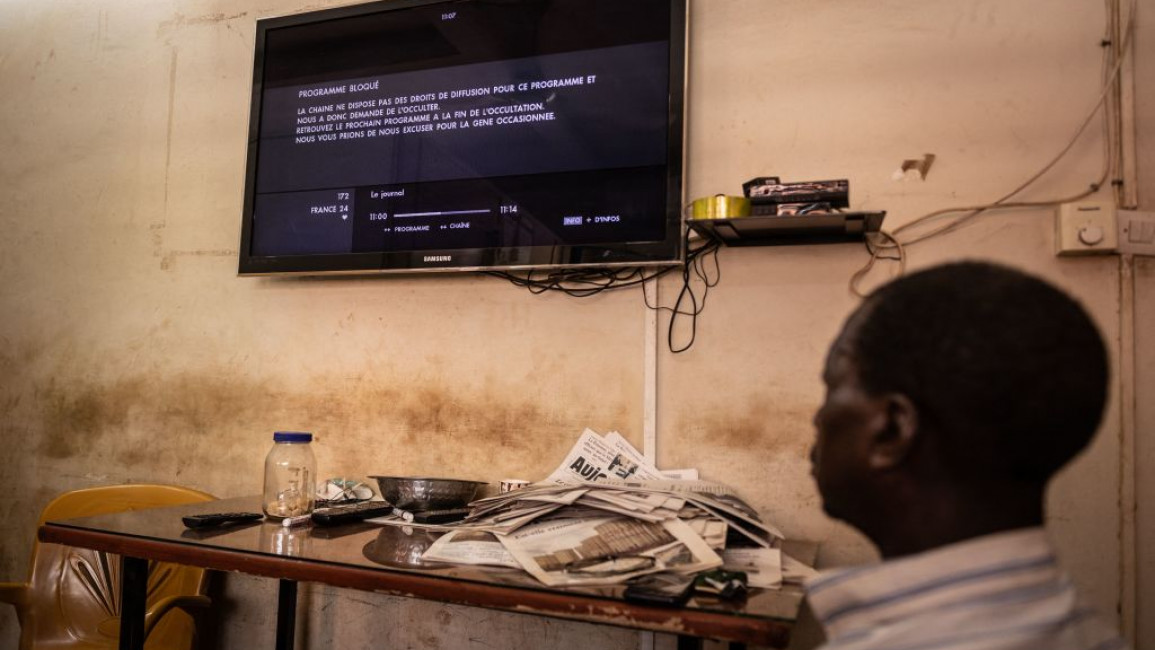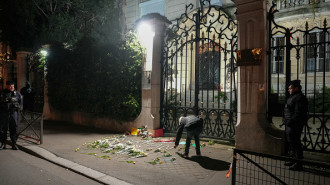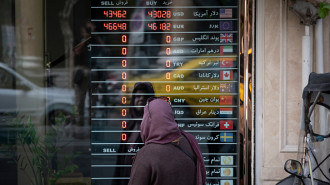Burkina junta takes France 24 off air after Al-Qaeda interview
The military junta in Burkina Faso on Monday suspended all broadcasts by the France 24 news channel in the west African country after it interviewed the head of Al-Qaeda North Africa.
Burkina Faso, which witnessed two coups last year, is battling a jihadist insurgency that spilled over from neighbouring Mali in 2015.
"By opening its channel to the head of AQIM (Al-Qaeda in the Islamic Maghreb), France 24 not only acts as a communications agency for these terrorists but also offers ... legitimacy to terrorist actions and hate speech," the junta spokesman said, referring to a March 6 interview with AQIM head Abu Ubaydah Yusuf al-Annabi.
"Therefore the government has decided... to suspend sine die the diffusion of France 24 programmes on all national territory," spokesman Jean-Emmanuel Ouedraogo said.
The France 24 broadcast was cut around 0900 GMT on Monday, AFP journalists said.
On March 6, France 24 broadcast written replies given by al-Annabi to 17 questions posed by the news channel's specialist on jihadist issues, Wassim Nasr.
"We believe this is part of a process of legitimising the terrorist message and we know about the effects of this message in this country," Ouedraogo later told RTB national television.
In Paris, France 24 hit back branding the Burkinabe government statement "outrageous and defamatory".
"The management of France 24 condemns this decision and disputes the baseless accusations calling into question the channel's professionalism," the broadcaster said.
It stressed that the AQIM chief's interview had not been directly aired but used as an account to confirm that the group had detained a French hostage who was released in Niger last week.
"The security crisis the country (Burkina Faso) is going through must not be a pretext for muzzling the media," France 24 said.
The French foreign ministry also issued a statement saying it "regrets" the suspension and voicing "constant and determined commitment in favour of press freedom".
The European Union also deplored the decision by the Burkinabe authorities.
The accusation against France 24 is "totally unjustified," said Peter Stano, spokesman for EU foreign policy chief Josep Borrell.
In December, the Burkina junta suspended Radio France Internationale (RFI), which belongs to the same France Medias Monde group as France 24, accusing the radio station of airing a "message of intimidation" attributed to a "terrorist chief".
Both RFI and France 24, which cover African affairs closely and are popular in francophone nations, have been suspended in neighbouring Mali, which is also run by a military junta fighting jihadist forces.
According to France 24 one third of Burkina's population watches the channel every week.
The military government in Ouagadougou said it would continue to "defend the vital interests of our people against anyone who acts as a loudspeaker for terrorist acts and the divisive hate speech of these armed groups".
In March, the ruling junta in Mali announced the suspension of the broadcasting authorisation granted to RFI and France 24, after they published stories implicating the national army in abuses against civilians.
One of the world's poorest nations, Burkina Faso's soldiers staged two coups in 2022 over the failure to tackle the threat from jihadist groups.
More than 10,000 civilians, troops and police have been killed, according to one NGO estimate, and at least two million people have been displaced.
With jihadists effectively controlling about 40 percent of the country, according to official figures, junta leader Captain Ibrahim Traore vowed to recover lost territory after taking power in September.
But jihadist attacks have escalated since the start of the year, with dozens of soldiers and civilians killed every week.
Former colonial power France has in the past year withdrawn troops from Mali, Burkina Faso and the Central African Republic.
The pullout from Mali and Burkina Faso, where French soldiers were supporting the Sahel nations in the long-running insurgency, came on the back of a wave of local hostility.



